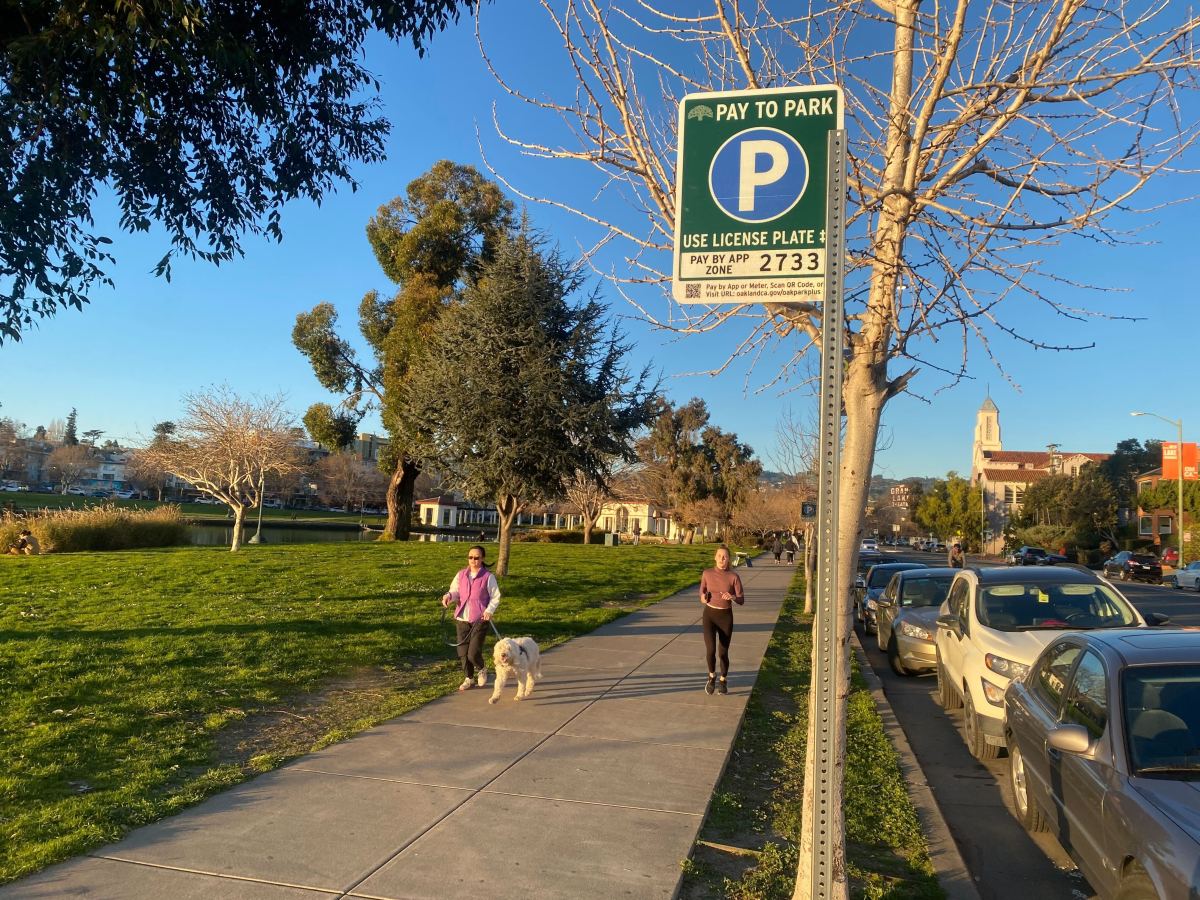City leaders are planning to increase parking fares soon by an average of a dollar.
According to Mayor Sheng Thao’s budget plan for the next fiscal year, which starts July 1st, the city will raise the minimum fixed hourly parking price from $2 to $3. Thao’s proposed budget was released in late May and it is currently being reviewed by the public and City Council, which will amend the plan and pass a final budget before the end of June.
Oakland’s Department of Transportation manages parking citations. Its staffers will roll out the $3 minimum fares in the city’s parking meters and meter collection business partners, including the ParkMobile app. Using the mobile app to pay for parking usually adds a small surcharge, such as $0.25, for every transaction.
Thao’s office explains in their budget plan that they’re raising parking prices to avoid layoffs or service cuts. The move to $3 should add about $6 million annually. The mayor and administration also argue that the price is in line with what drivers in other cities pay and it hasn’t been increased in over a decade.
“The price of parking meters has not changed since 2009, during which time the Consumer Price Index has increased by 47%. The proposed price increase is consistent with prices in peer jurisdictions,” Thao’s team explained in their plan.
San Francisco has a parking meter system that changes based on demand, with the lowest rate from $0.50 an hour to more than $10 an hour. For example, parking at Bryant Street and Mariposa Street in front of the KQED building changes from $2.75 an hour in the morning to $.50 an hour in the afternoon. The average parking rate in San Francisco is not known.
Oakland also has several demand-based parking zones around the city but unlike in San Francisco, it’s difficult to learn how many. The city’s on-street parking inventory dataset was last updated four years ago, and there is no map with updated prices.
City spokesperson Sean Maher told The Oaklandside that parking data has not been updated because the city doesn’t have enough staff to do the work. “When this public portal was last updated there were two staff positions dedicated to managing the parking system. Both of those staff left the department some time ago and one position has been just recently re-hired. We will update this inventory as soon as staff capacity allows,” Maher said.
An Oaklandside analysis of that 2020 database showed 4,619 parking meters, including in loading zones and with multiple-space parking meters, had minimum $2.00 hourly parking fares.

City staff wrote in the budget plan that parking price increases will be “most felt” by low-income people because rates aren’t adjusted for income. However, according to city staff, most parking meters are in commercial zones such as Downtown, Temescal, Grand Lake, Montclair, and Laurel, all of which are low-to-medium equity priority communities, meaning lots of people who live, work, and shop in these areas have higher incomes than other commercial areas like Fruitvale and deep-East Oakland.
According to city data from 2020, the 32 lowest-priced parking meters in Oakland were located on Moraga Avenue in Montclair—$1 per hour. Maher said that demand-based pricing has since been added to meters in Montclair Village, with a range between $1 and $3 per hour. Chinatown also now has demand pricing between $1.50 and $2.50. Both of those neighborhoods’ parking rates will also go up by $1 starting this July.
Previous Oaklandside reporting has found that many people of color tend to feel like parking meters are being used to squeeze them out of parts of the city that are gentrifying. Last year, residents we spoke to objected to the addition of parking meters during weekends around Lake Merritt. The city is expected to add demand-pricing metering at the lake.
The city also announced in its budget proposal that it would start enforcing debt collection on unpaid parking violations. The state suspended parking debt collection during the pandemic and Oakland has continued that pause since then. The city hopes debt collection will bring in an additional $1.2 million.
Other changes to the Transportation Department’s budget
According to the city, the last major update to the city’s parking signage was 15 years ago. The city’s signs are in a “severe state of disrepair.” OakDOT is planning to use $270,000 to put up new signs that will include QR codes, which people can scan to pull up information about parking rules and fees on their phones.
The budget also includes one-time funding of $700,000 for a five-year speed camera pilot program. Last year, the state legislature authorized Oakland and a few other cities to add speed enforcement cameras at dangerous locations, including near schools and where sideshows occur.
OakDOT’s staffing will remain about the same, with the addition of a new city carpenter, a transportation planner, and a civil engineer. The new planner and engineer will work in the Major Projects Division to advance projects planned near Jack London Square and to write more grants to pay for other projects.

